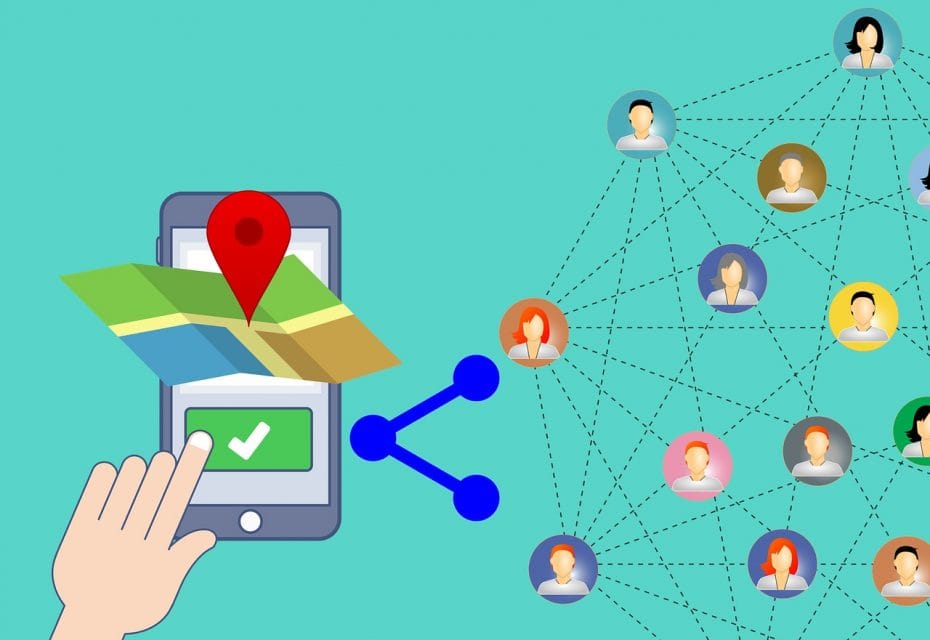What We Have Covered in This Article
Last Updated on October 18, 2019 by Editor Futurescope
Technology is a boon. We can’t deny it. Sometimes, though, we wish it was a little less invasive.
Technology has stolen your privacy
It’s an open secret that the government knows everything about you. Well, not everything, but close. The government uses technology to build up detailed citizen profiles. Essentially, it keeps track of you.
But did you know that Google knows just as much – if not more – than the government? Ever since you started using Google, you were tracked. By now, as Forbes can confirm, Google knows all of this about you:
- Your personal details.
- Your income.
- Your relationship status.
- Your location.
- Your complete browsing history.
- Your email contents.
- The sound of your voice.
- Your favorite food.
- Your dreams and ambitions.
- The underwear you’re wearing?!
This is by no means a full list. We doubt even our partners know half as much about us.
It’s only getting worse
How did Google come by its information? You guessed it – it used your devices to keep track of you. And for most of us, the device we use the most is our smartphone.
Smartphones have come a long way. Earlier, they were simple communication devices. Now, they are powerful computers. On the whole, it’s a welcome evolution. However, with every leap in smartphone tech, what Google – and others – can track only increases.
The way our society is now also reflects the change. Before, people hired private eyes to follow their maybe-cheating partners. Now, people prefer to track their partner’s phone instead. Why? Phone tracking is easy and cheap. You can even find free solutions on how to track a cell phone location without them knowing on the internet.
Cellphone tracking: 5 Predictions for the future
We may already be living out the scenario mentioned in George Orwell’s 1984. Everything you say or do is monitored – largely thanks to your mobile device. But what can you expect in the next 5-20 years?
Here are some predictions on the future of cellphone tracking and monitoring:
1. Cross-device attribution
You may have noticed that ads follow you around online. When you access your email ID, for instance, you see an ad. When you move to a new website, you may see the same ad again. This is called “cross-channel” tracking. The same or related ad tracks you and goes wherever you go.
In the future, you may end up seeing the same ad not just on a single device, but across all devices. The ad will also follow you in the real world. This is called “cross-device attribution”. Marketers and others will track you 24/7 – and your mobile phone will play a significant role. How?
As you may know, the human ear can’t pick up high-frequency sounds. Your phone may emit a high frequency sound specific to you when you’re at home or outside. Your ears won’t be able to pick this sound up – but the devices around you will. They will use the sound to identify you, track you, send you ads, and record your information.
2. AI-based phone tracking
Artificial Intelligence (AI) technology is growing rapidly. Major companies like Google, Amazon, and Facebook make use of AI to provide better services and customer support. Of course, this same technology is making tracking you easier.
For example, Google Maps now makes heavy use of AI technology. The app uses AI to provide extra features, like the fastest route to a destination or a look at the best restaurants around you. However, the AI also tracks your daily movements, habits, parking spots, the people you meet, and much more.
Further, AI is still a relatively new technology. An expert hacker can hack an AI-based system easily. In fact, hackers have made waves recently with their AI exploits. Funnily enough, they are using AI tech to launch the attack.
3. Downgrade attacks
Imagine that there are two ways to connect to a website. One way is secure. The other isn’t so secure. Usually, your mobile phone automatically chooses the secure way to connect to the website. But what if it was forced to use the less-secure way instead?
If a device is forced to a less-secure channel, it’s much easier to track. Any information it sends out or receives can be caught easily. This is known as downgrade attack.
Modern websites use advanced security protocols. However, the old way the website operated still exists. Why? For compatibility and other reasons. In the future, your mobile phone may be forced into using old technology to make it easier to track.
4. Apps and hardware-based tracking
You are already familiar with tracking software: Google Maps, Apple’s Find My iPhone, and Facebook’s Location tagging. These services are trustworthy even if they track you, though, right? Maybe. We don’t know for sure.
Also consider: What if someone else uses these apps to track you instead? It’s where the future is headed. Hackers are starting to replace legitimate software updates with fake ones. The next time you update Google Maps, a hacker may be watching.
This “switch out” also applies to hardware. Your phone’s hardware could be changed and used to track you. China’s Huawei was banned recently for supposedly spying on users via their phones. We think other phone manufacturers may attempt the same in the future.
5. The 5G rollout
4G networks are vulnerable to hacking. Why is that? Simply put, 4G networks are big and sensitive. There are multiple entry points via which a hacker can get inside. Still, the 4G situation is mostly under control.
Worryingly, though, we’re rolling out 5G technology worldwide. With 5G, the entry points available to hackers are even higher. A recent report published by the European Commission talks about this in detail.
Hackers are not the only threat. After 5G technology rolls out, your phone carrier, the government, your employer, and the people closest to you will be able to track you even more closely. An ultra-fast network makes it possible to track multiple devices simultaneously.
Conclusion
While our predictions may seem a little dark, it’s not as bad as it sounds. While the tracking and privacy threat is real, people still have control over their personal data. Also, the government is fast drafting new laws to combat rising privacy threats – like the California CCPA legislation.
We’d like to end by saying that not all tracking is bad. There are many positive applications of the technology – like keeping your loved ones safe, providing emergency medical aid, and more!









